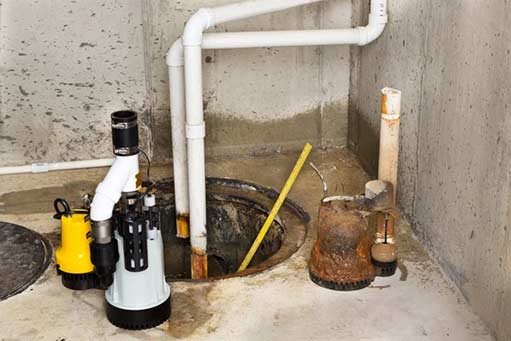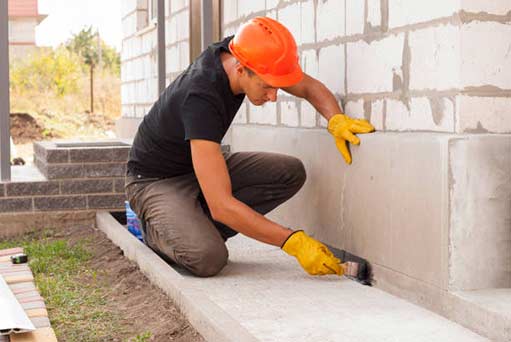
Basement flooding can be a homeowner’s worst nightmare. It not only causes significant damage to the property but also poses health risks and can be a hassle to clean up. Understanding the causes of basement flooding is essential to prevent it from happening in the first place. Here we will explore the common causes of basement flooding and provide effective strategies to avoid this costly and frustrating ordeal.
The Devastating Effects of Basement Flooding
Basement flooding can have severe consequences for both the structure and residents of a home. Excessive water accumulation in the basement can lead to:
- Structural damage: Water can weaken the foundation, compromise the structural integrity of the building, and result in costly repairs.
- Mold and mildew growth: Excess moisture promotes the growth of mold and mildew, which can damage furniture, walls, and contribute to respiratory issues.
- Electrical hazards: Flooding can damage electrical systems, increasing the risk of electrical shock or fire.
- Property damage: Basement flooding can ruin personal belongings, such as furniture, carpets, appliances, and valuable items.
- Health risks: Exposure to mold and contaminants in floodwater can pose significant health risks, including respiratory problems and allergic reactions.
Common Causes of Basement Flooding
Basement flooding can result from various factors. Understanding these causes can help homeowners take proactive measures to prevent flooding. The following are some common reasons for basement flooding:
Inadequate Waterproofing
Poor waterproofing is one of the leading causes of basement flooding. If the foundation walls or floors have cracks or gaps, water can seep through during heavy rain or when the groundwater level rises. Insufficient waterproofing measures can allow water to infiltrate the basement, leading to flooding.
Poor Drainage System
A faulty or inadequate drainage system can contribute to basement flooding. If the gutters and downspouts are clogged or not properly directing water away from the foundation, it can accumulate near the basement walls. Over time, the pressure from the water can cause seepage and flooding.
Sump Pump Failure
A sump pump is a vital component of a basement’s waterproofing system. It efficiently removes excess water from the sump pit and prevents rising groundwater from flooding the basement. However, if the sump pump fails due to power outages, mechanical issues, or improper maintenance, it can leave the basement vulnerable to flooding.
Plumbing Issues
Leaking or burst pipe emergencies can quickly lead to basement flooding. Whether it’s a faulty plumbing installation, aging pipes, or extreme weather conditions, any water leakage in the plumbing system can cause significant damage and result in a flooded basement.

In some cases, homeowners may need to implement exterior drainage solutions, such as French drains or curtain drains. These systems can redirect water away from the foundation, minimizing the risk of basement flooding.
Preventing Basement Flooding
Fortunately, there are several proactive measures homeowners can take to prevent basement flooding. By addressing the root causes and implementing preventative strategies, the risk of basement flooding can be significantly reduced. Here are some effective tips to prevent basement flooding:
Ensure Proper Exterior Grading
Proper exterior grading is crucial to keep water away from the foundation. The ground should slope away from the house, directing water towards the yard or a drainage system. This prevents water from accumulating near the basement walls and reduces the risk of seepage and flooding.
Maintain a Functional Gutter System
Regularly clean and maintain gutters and downspouts to ensure proper water drainage. Remove leaves, debris, and any blockages that can hinder the flow of water. Consider installing gutter guards to prevent clogs and direct water away from the foundation. Extend downspouts at least five feet away from the house to prevent water from pooling near the basement.
Invest in Proper Basement Waterproofing
Consult with a professional contractor experienced in basement waterproofing to assess your home’s unique requirements. Proper waterproofing techniques, such as sealing cracks, installing interior or exterior drainage systems, and applying waterproof coatings, can mitigate the risk of basement flooding.
Maintain and Test Your Sump Pump
Regularly inspect and maintain your sump pump to ensure it is in proper working condition. Test the pump periodically to verify that it activates when water enters the sump pit. Consider installing a sump pump battery backup system to ensure the pump functions even during power outages.
Install a Water Alarm
A water alarm is an inexpensive device that can provide early detection of water accumulation in your basement. It alerts homeowners through a loud sound or notification, allowing them to address the issue promptly and prevent extensive damage.
Inspect and Maintain Plumbing Pipelines
Regularly inspect your plumbing system for any leaks, cracks, or potential issues. Pay attention to areas such as laundry rooms, bathrooms, and kitchens. Replace worn-out pipes, repair leaks, and ensure proper insulation to prevent pipe bursts and subsequent basement flooding.
Consider Exterior Drainage Solutions
In some cases, homeowners may need to implement exterior drainage solutions, such as a French drain installation or curtain drain installation. These systems can redirect water away from the foundation, minimizing the risk of basement flooding.
Basement flooding can cause significant damage to homes and pose health risks to occupants. Understanding the common causes of basement flooding and implementing preventative measures is essential to safeguard your property. By ensuring proper exterior grading, maintaining a functional gutter system, investing in basement waterproofing, and regularly inspecting and maintaining your sump pump and plumbing system, you can greatly reduce the risk of basement flooding. Take the necessary steps to protect your home and avoid the costly and stressful consequences of basement flooding.

